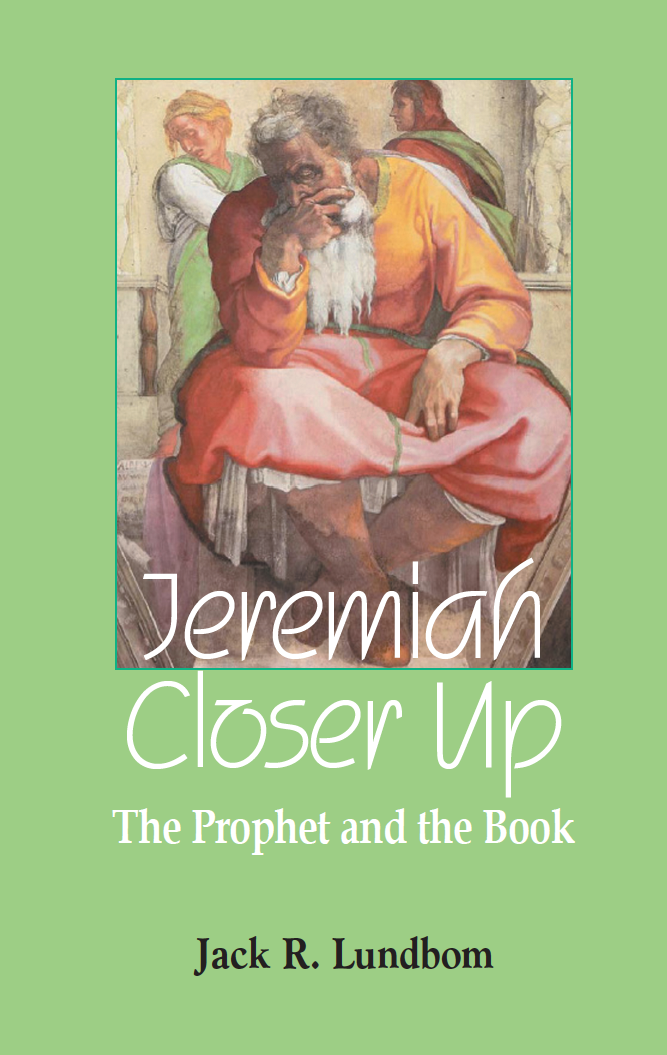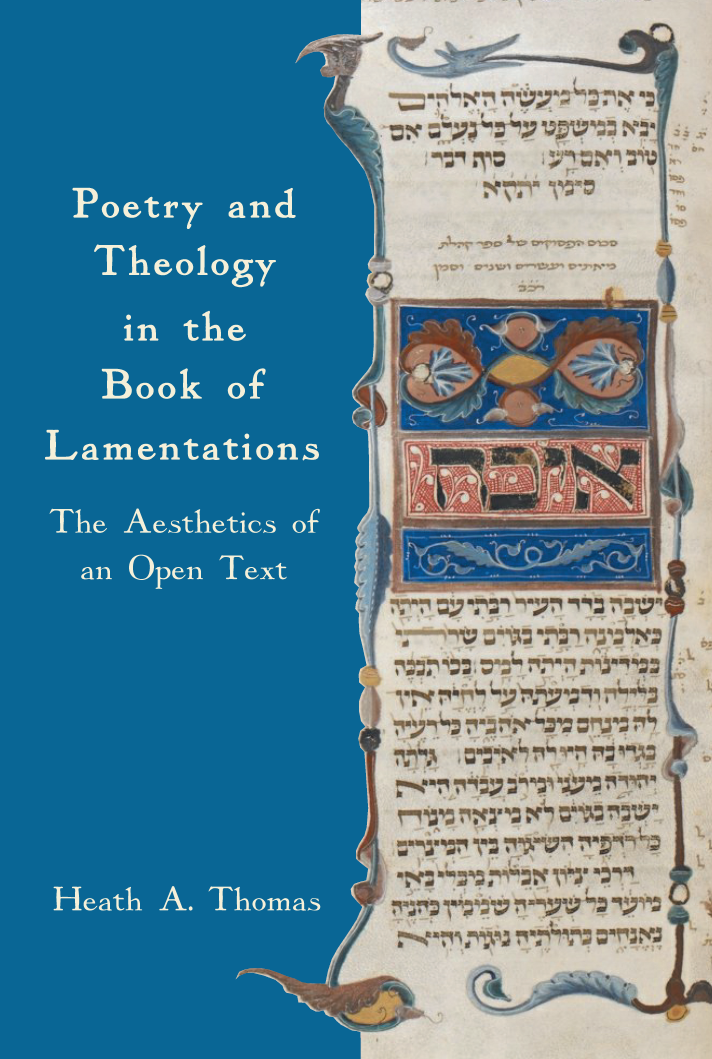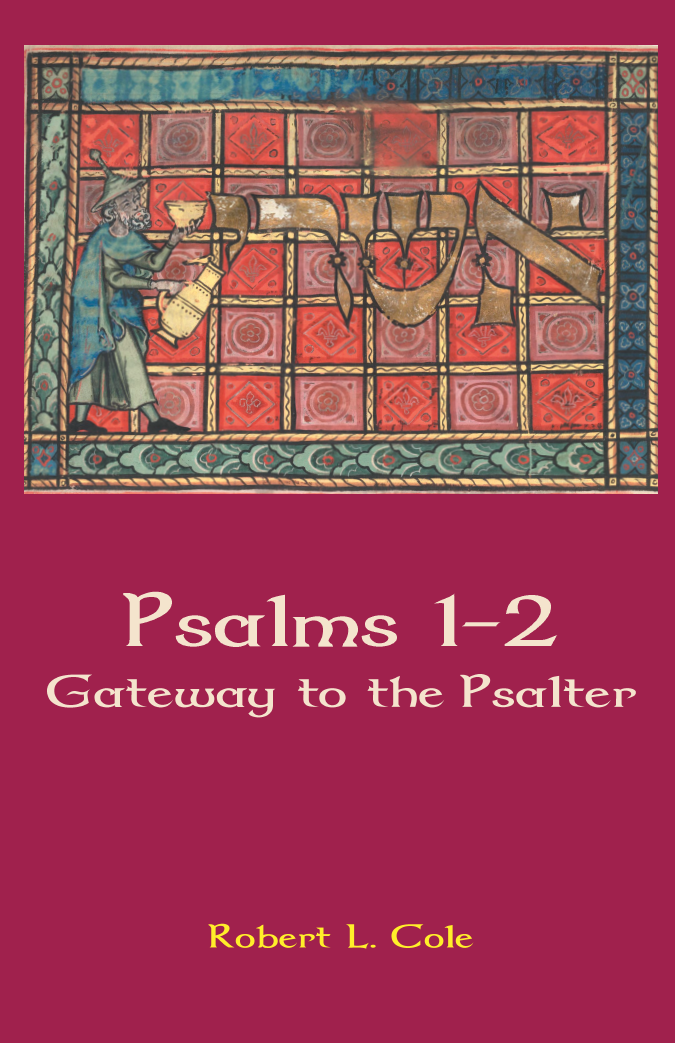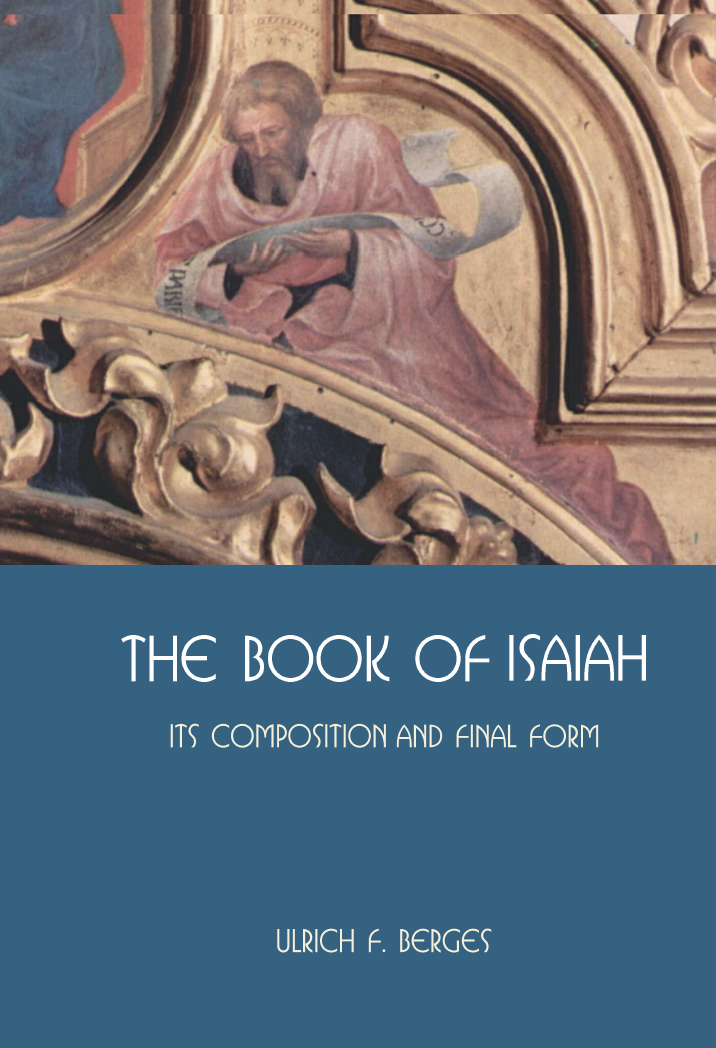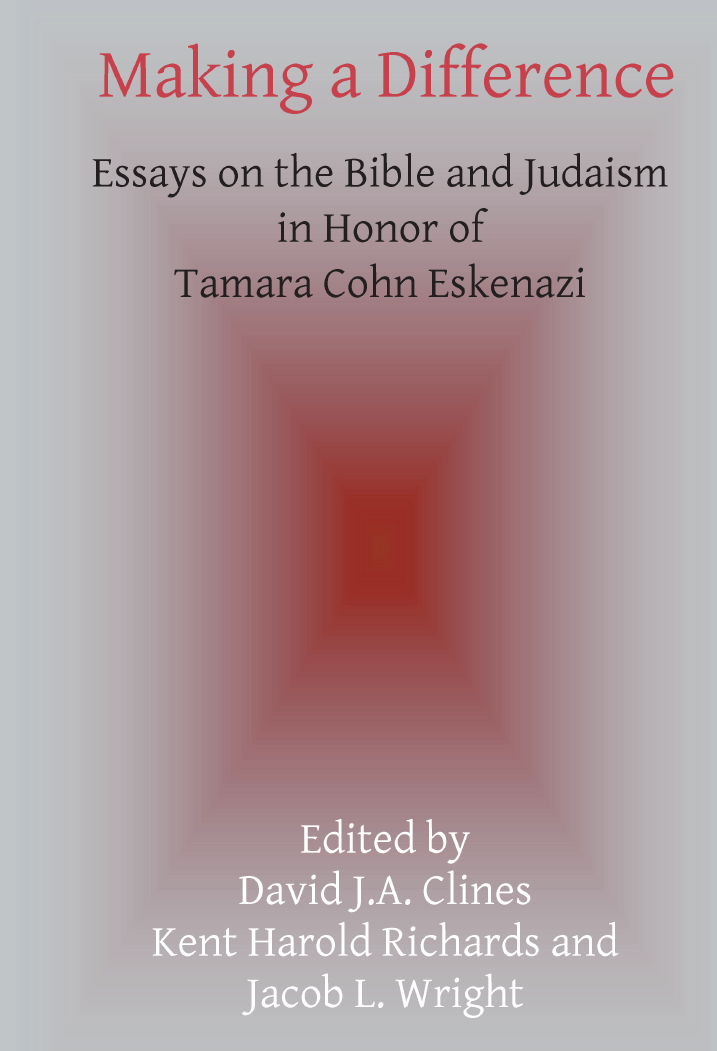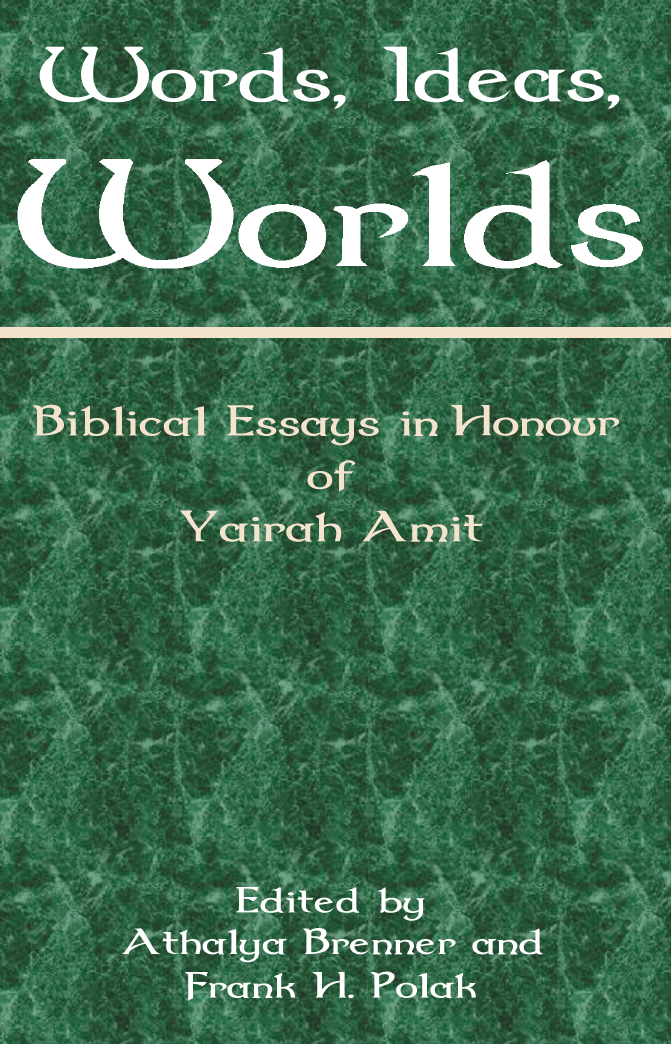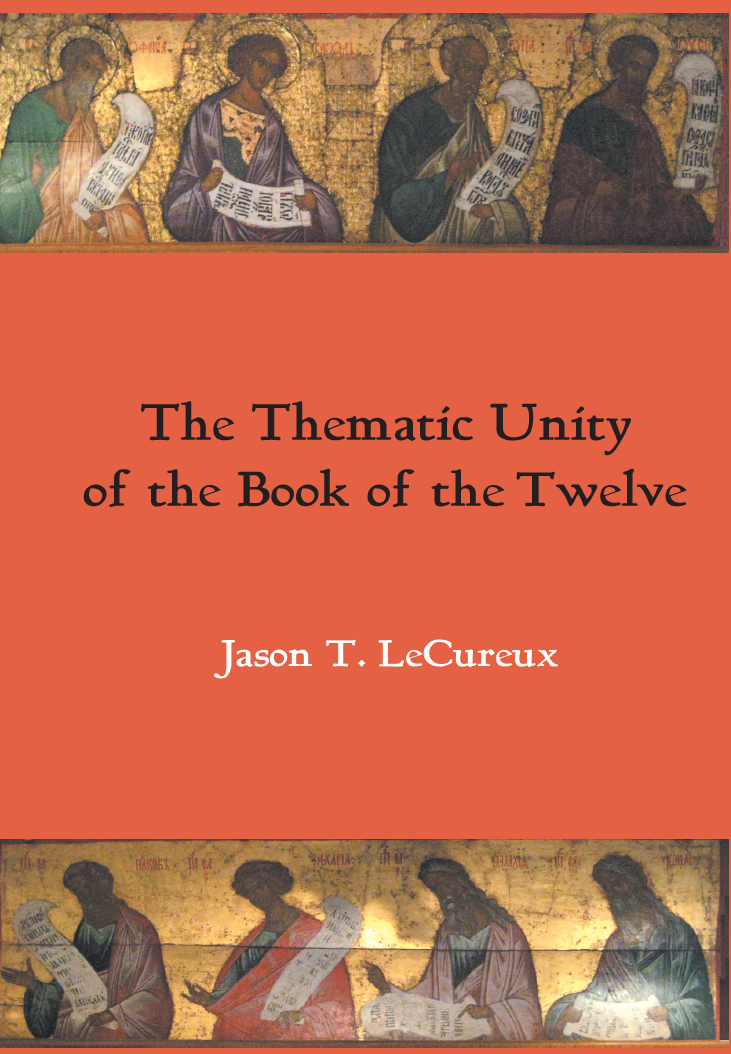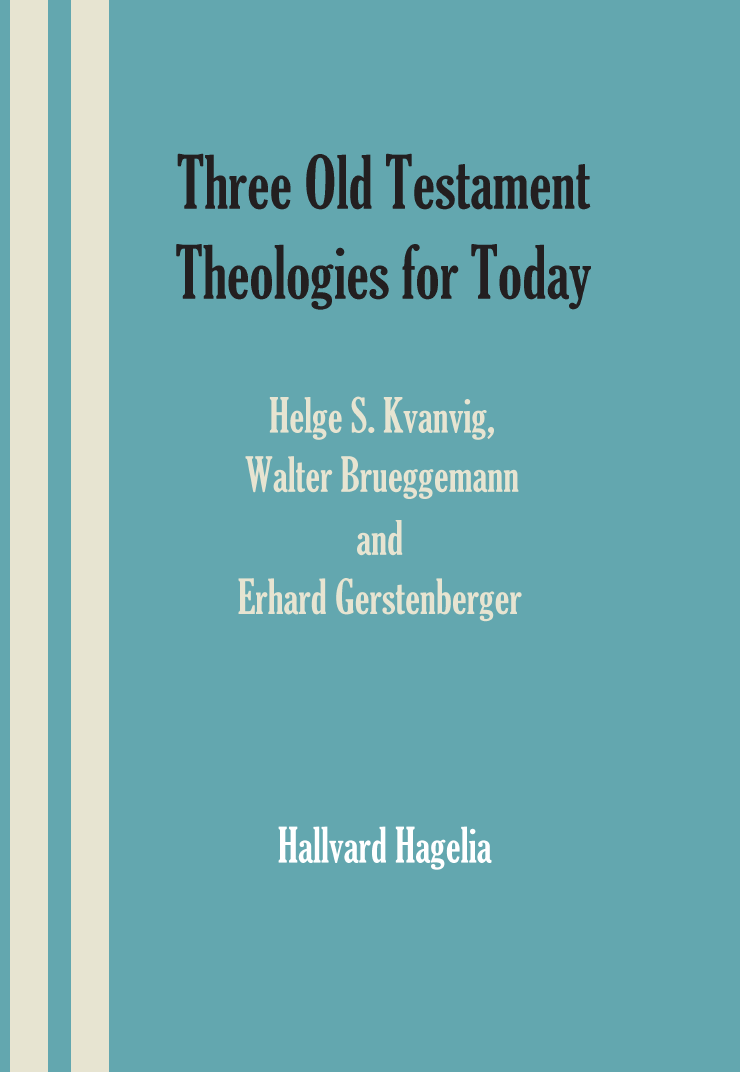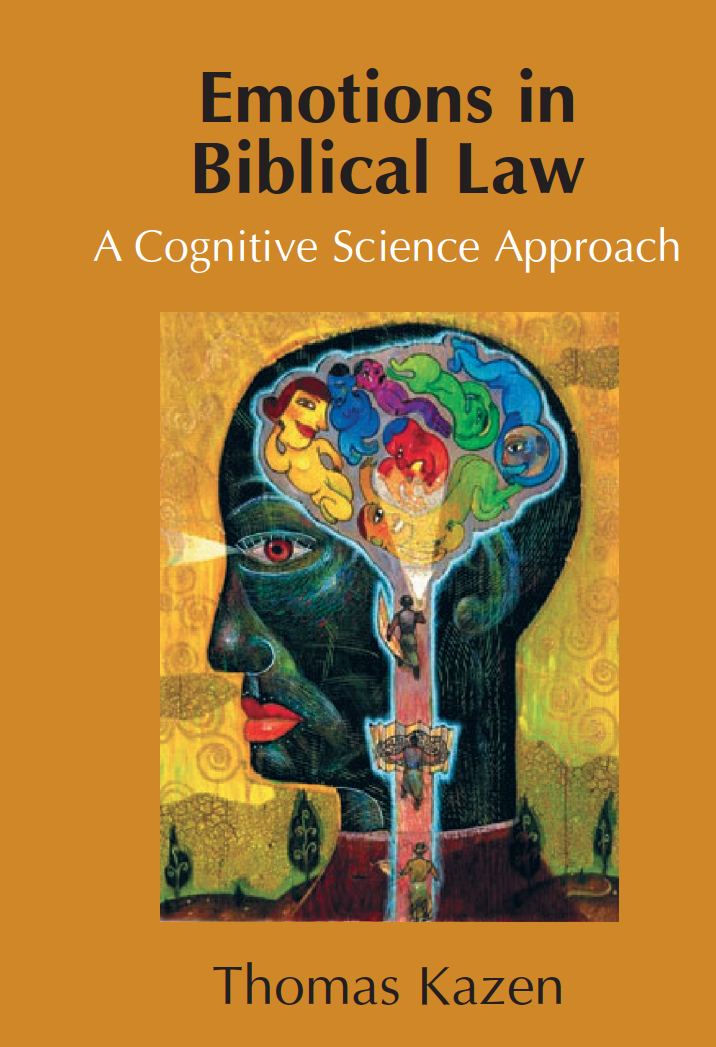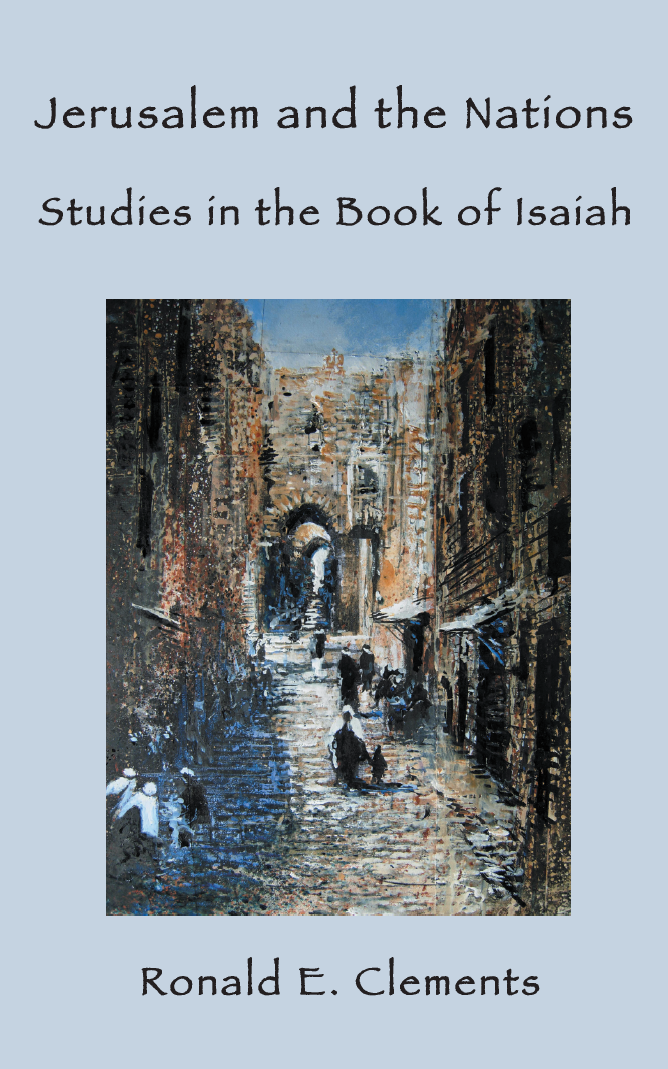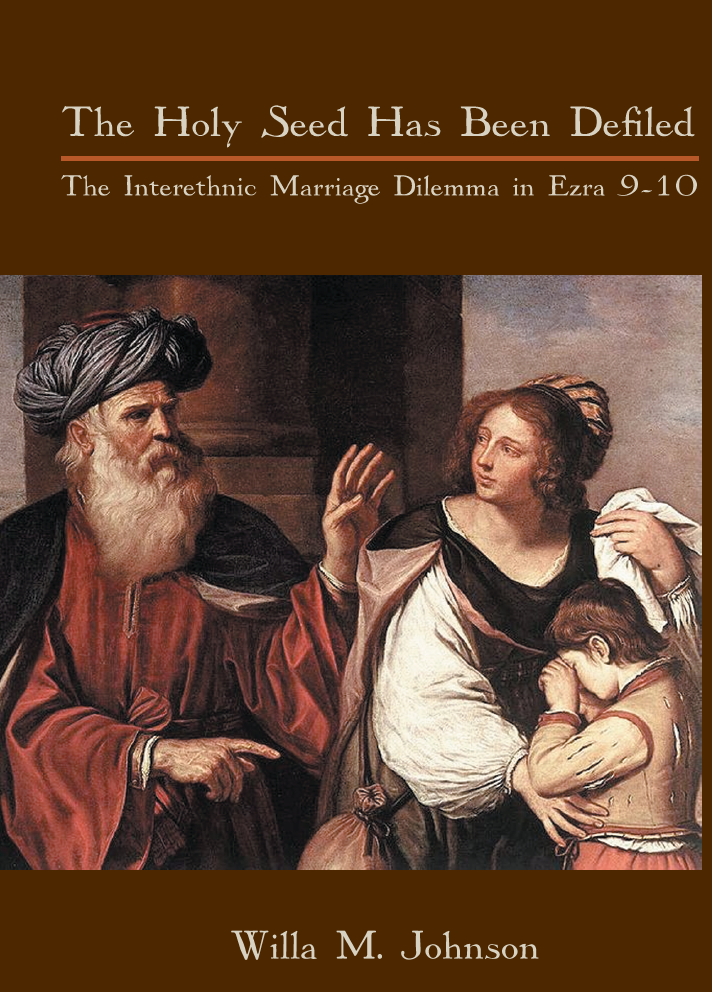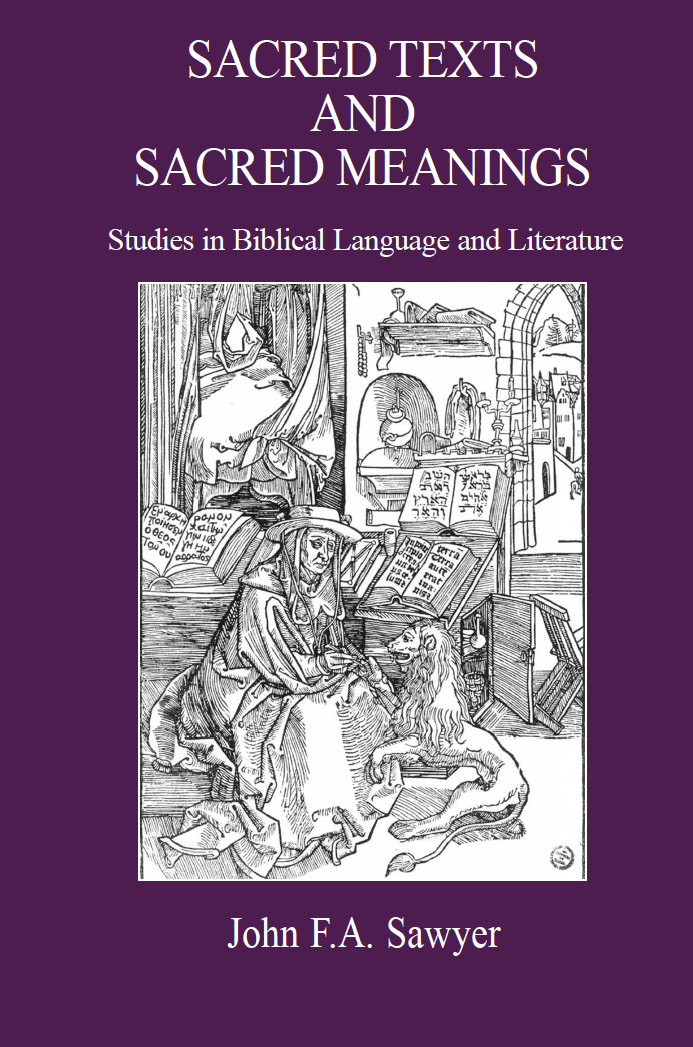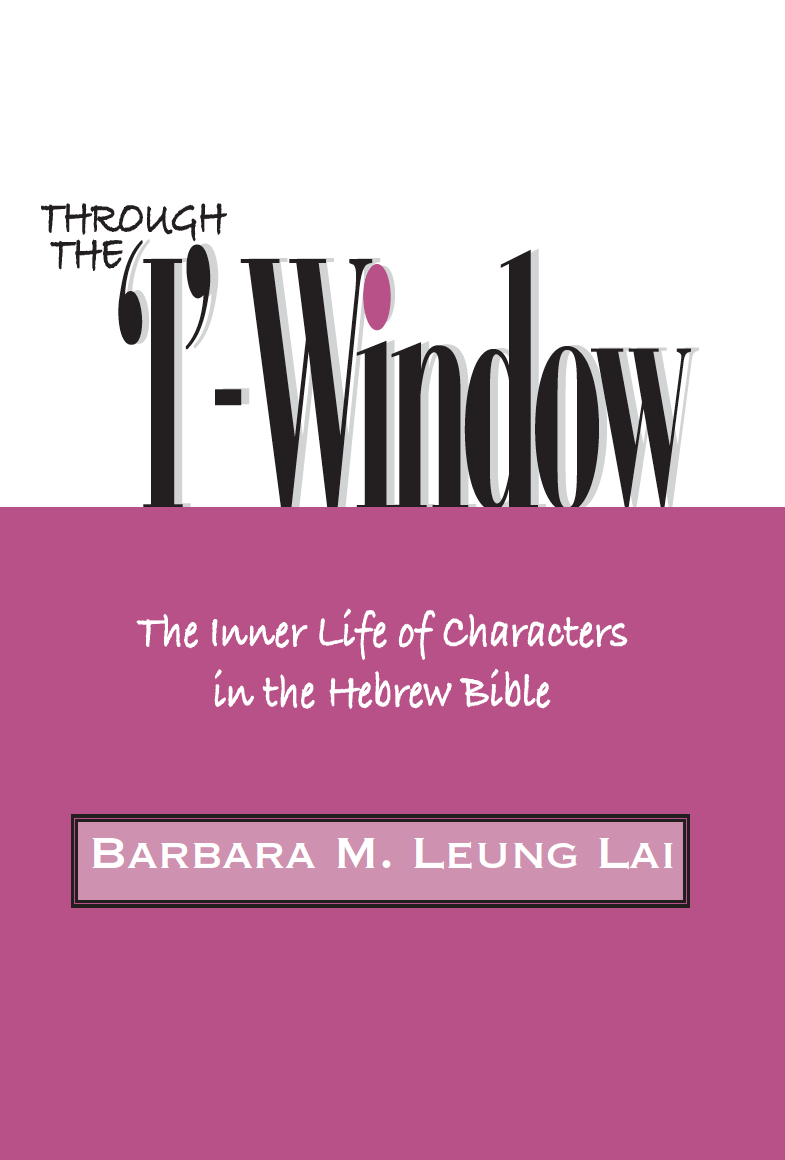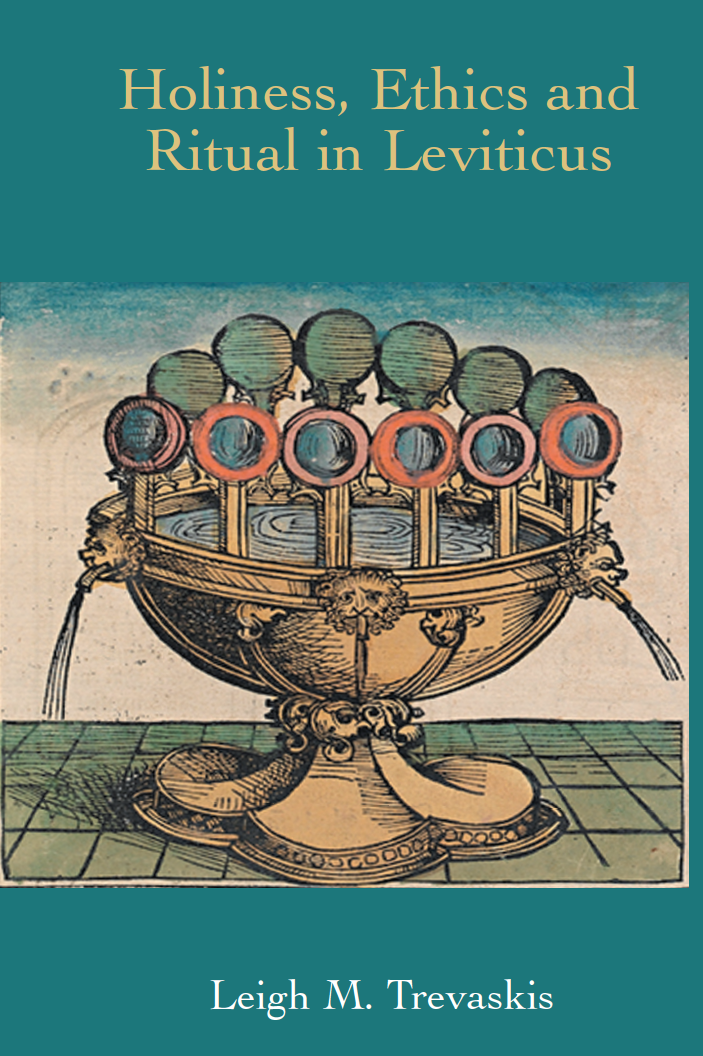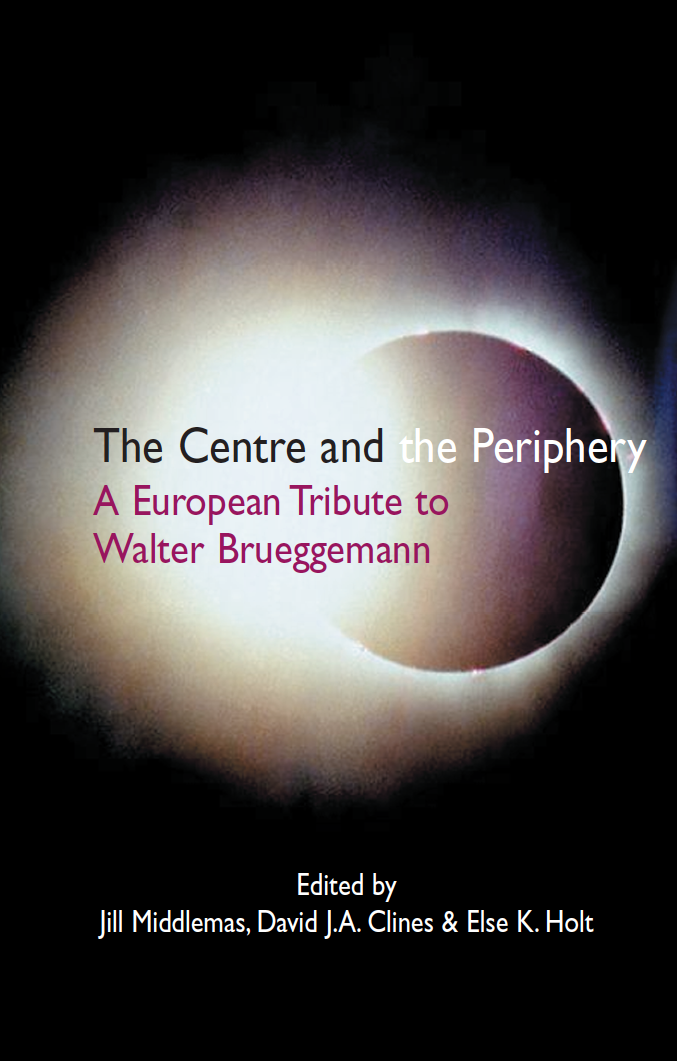Jeremiah Closer Up: The Prophet and the Book
Published: May 2013
Price range: £15.00 through £40.00
Closer up than what? Many recent studies of Jeremiah leave us with but a faint glimmer of this great Hebrew prophet; in some he disappears completely into later tradition. Some scholars think that the book of Jeremiah lacks historical veracity: when it was composed, supposedly in the late exilic or postexilic periods, historical memories had been dimmed and ideology had come to dominate the Jeremiah legacy. The present essays combine to argue that both the prophet and his book can be viewed “closer up” than the imagination of many modern-day interpreters will allow.
The first three essays discuss the text, rhetoric and composition of the book of Jeremiah. The longer Hebrew text is given preference over the Greek Septuagint text, which means that we can dispense entirely with the idea that scribes were busily writing, editing and expanding the Jeremiah book in Babylon. Rhetorical and other delimiting criteria show that Jeremiah’s so-called ‘Temple Sermon’ (7.1-15) is rather a cluster of three oracles manifesting a rudimentary form of logic. Finally, a correlation of Gedaliah’s murder with the exile of 582 argues for a nearly four-year existence of the remnant community at Mizpah, more than enough time for Jeremiah and Baruch to write up the events following the destruction of Jerusalem.
The remaining essays discuss Jeremiah’s views of history, the created order, the covenant, and nations of the world, as well as the prophet’s so-called ‘confessions’. These extraordinary insights into the interior disposition of a Hebrew prophet reveal how Jeremiah felt about the word he had to preach, and what impact it had on him personally. The confessions are analysed both as formal psalm-like laments, and as gems of rhetorical composition.
Jeremiah Closer Up: The Prophet and the Book
Price range: £15.00 through £40.00
Closer up than what? Many recent studies of Jeremiah leave us with but a faint glimmer of this great Hebrew prophet; in some he disappears completely into later tradition. Some scholars think that the book of Jeremiah lacks historical veracity: when it was composed, supposedly in the late exilic or postexilic periods, historical memories had been dimmed and ideology had come to dominate the Jeremiah legacy. The present essays combine to argue that both the prophet and his book can be viewed “closer up” than the imagination of many modern-day interpreters will allow.
The first three essays discuss the text, rhetoric and composition of the book of Jeremiah. The longer Hebrew text is given preference over the Greek Septuagint text, which means that we can dispense entirely with the idea that scribes were busily writing, editing and expanding the Jeremiah book in Babylon. Rhetorical and other delimiting criteria show that Jeremiah’s so-called ‘Temple Sermon’ (7.1-15) is rather a cluster of three oracles manifesting a rudimentary form of logic. Finally, a correlation of Gedaliah’s murder with the exile of 582 argues for a nearly four-year existence of the remnant community at Mizpah, more than enough time for Jeremiah and Baruch to write up the events following the destruction of Jerusalem.
The remaining essays discuss Jeremiah’s views of history, the created order, the covenant, and nations of the world, as well as the prophet’s so-called ‘confessions’. These extraordinary insights into the interior disposition of a Hebrew prophet reveal how Jeremiah felt about the word he had to preach, and what impact it had on him personally. The confessions are analysed both as formal psalm-like laments, and as gems of rhetorical composition.
Poetry and Theology in the Book of Lamentations: The Aesthetics of an Open Text
Published: Mar 2013
£60.00
The book of Lamentations is a challenge to its readers. Its ambiguous theology, strident protestations against its deity, and haunting imagery confound interpreters. This monograph engages the enigma of Lamentations by assessing its theology. It does so, however, neither by tracing a single theological perspective through the book nor by reconstructing the history of the composition of the book. Rather, Heath Thomas assesses the poetry of Lamentations by offering a close analysis of each poem in the book. He reconsiders the acrostic as the foundational structure for the poetry, reads the book as an intentionally composed whole, and assesses the pervasive use of repetition, metaphor, and allusion.
For the first time in the field, the analysis here is grounded on the insights of the Italian semiotician Umberto Eco. Drawing upon Eco's distinction between 'open' and 'closed' textualities, Thomas argues that Lamentations represents a distinctively 'open' text, one that presents its reader with a myriad of surprising avenues to interpret the poetry. This distinctive approach avoids a polarization in the portrait of God in Lamentations, arguing that its poetry neither justifies God outright nor does it exonerate God's people in the exilic age. Rather, it enables these theological visions to interrelate with each another, inviting the reader to make sense of the interaction.
The ambiguous theological vision of Lamentations, then, is not a problem that the reader is intended to overcome but an integral feature in the construction of meaning. This original monograph offers a new perspective on how the poetry informs our appreciation of theological thought in the exilic age.
Poetry and Theology in the Book of Lamentations: The Aesthetics of an Open Text
£60.00
The book of Lamentations is a challenge to its readers. Its ambiguous theology, strident protestations against its deity, and haunting imagery confound interpreters. This monograph engages the enigma of Lamentations by assessing its theology. It does so, however, neither by tracing a single theological perspective through the book nor by reconstructing the history of the composition of the book. Rather, Heath Thomas assesses the poetry of Lamentations by offering a close analysis of each poem in the book. He reconsiders the acrostic as the foundational structure for the poetry, reads the book as an intentionally composed whole, and assesses the pervasive use of repetition, metaphor, and allusion.
For the first time in the field, the analysis here is grounded on the insights of the Italian semiotician Umberto Eco. Drawing upon Eco's distinction between 'open' and 'closed' textualities, Thomas argues that Lamentations represents a distinctively 'open' text, one that presents its reader with a myriad of surprising avenues to interpret the poetry. This distinctive approach avoids a polarization in the portrait of God in Lamentations, arguing that its poetry neither justifies God outright nor does it exonerate God's people in the exilic age. Rather, it enables these theological visions to interrelate with each another, inviting the reader to make sense of the interaction.
The ambiguous theological vision of Lamentations, then, is not a problem that the reader is intended to overcome but an integral feature in the construction of meaning. This original monograph offers a new perspective on how the poetry informs our appreciation of theological thought in the exilic age.
Psalms 1-2: Gateway to the Psalter
Published: Jan 2013
£70.00
As against the form-critical approach, which sees the first two psalms as more or less random examples of the torah and royal types, this study argues for a deliberate and cogent arrangement of Psalms 1 and 2.
A detailed linguistic analysis of and comparison between these two apparently disparate psalms at the outset of the book reveals the purpose for their juxtaposition. The principal characters in the first psalm are further described in the second. The man of Psalm 1 is portrayed in eschatological terms as an impeccable royal, sacerdotal, and all-conquering military figure. He appears again in Psalm 2 but as a heavenly-enthroned victorious priest and king. His opponents, the wicked in Psalm 1, are identified in Psalm 2 as recalcitrant rulers and peoples who reject his rule and seek to do away with him.
However, the calculated divine response to their plotting assures their ultimate defeat unless they submit to him. This cohesive and coherent introductory pair of psalms sets a pattern at the beginning for reading all those that follow. Indeed, a thorough understanding of the first two psalms and their integrated message is a prerequisite for understanding the purpose of the entire book.
Psalms 1-2: Gateway to the Psalter
£70.00
As against the form-critical approach, which sees the first two psalms as more or less random examples of the torah and royal types, this study argues for a deliberate and cogent arrangement of Psalms 1 and 2.
A detailed linguistic analysis of and comparison between these two apparently disparate psalms at the outset of the book reveals the purpose for their juxtaposition. The principal characters in the first psalm are further described in the second. The man of Psalm 1 is portrayed in eschatological terms as an impeccable royal, sacerdotal, and all-conquering military figure. He appears again in Psalm 2 but as a heavenly-enthroned victorious priest and king. His opponents, the wicked in Psalm 1, are identified in Psalm 2 as recalcitrant rulers and peoples who reject his rule and seek to do away with him.
However, the calculated divine response to their plotting assures their ultimate defeat unless they submit to him. This cohesive and coherent introductory pair of psalms sets a pattern at the beginning for reading all those that follow. Indeed, a thorough understanding of the first two psalms and their integrated message is a prerequisite for understanding the purpose of the entire book.
The Book of Isaiah: Its Composition and Final Form
Published: Oct 2012
£80.00
Study of the book of Isaiah has in recent times been strongly marked by a tension between synchronic and diachronic approaches. The first is favoured mainly by English-speaking, the second by German-speaking scholars. Berges's book attempts to mediate between the two poles, arguing that the final form analysis and the tracing of the development of that form are deeply interdependent.
This new research paradigm is applied here to the entire text of the book of Isaiah. Berges works consistently from the synchronic to the diachronic and back again to the evolved synchronous final form. Features that have been repeatedly observed —the cross-connections, key word associations, resumption of themes, and especially the bracketing of the book by chaps. 1 and 66 —are traces of a deliberate interweaving of various small compositions as well as of larger literary redactions.
The paradigm most suited to the book of Isaiah in all its complexity is not that of one comprehensive overall structure or final redaction, but that of smaller compositions that build on one another, come into conversation with one another, and, each in its own way, bring into play specific contemporary problems. We should not force a common thematic denominator on the book, but it becomes clear that Jerusalem and Zion belong to the basic tenor of the book of Isaiah as it was developed and refashioned through the centuries.
The Book of Isaiah: Its Composition and Final Form is translated by Millard C. Lind from its German original, Das Buch Jesaja: Komposition und Endgestalt (Freiburg: Herder, 1998).
The Book of Isaiah: Its Composition and Final Form
£80.00
Study of the book of Isaiah has in recent times been strongly marked by a tension between synchronic and diachronic approaches. The first is favoured mainly by English-speaking, the second by German-speaking scholars. Berges's book attempts to mediate between the two poles, arguing that the final form analysis and the tracing of the development of that form are deeply interdependent.
This new research paradigm is applied here to the entire text of the book of Isaiah. Berges works consistently from the synchronic to the diachronic and back again to the evolved synchronous final form. Features that have been repeatedly observed —the cross-connections, key word associations, resumption of themes, and especially the bracketing of the book by chaps. 1 and 66 —are traces of a deliberate interweaving of various small compositions as well as of larger literary redactions.
The paradigm most suited to the book of Isaiah in all its complexity is not that of one comprehensive overall structure or final redaction, but that of smaller compositions that build on one another, come into conversation with one another, and, each in its own way, bring into play specific contemporary problems. We should not force a common thematic denominator on the book, but it becomes clear that Jerusalem and Zion belong to the basic tenor of the book of Isaiah as it was developed and refashioned through the centuries.
The Book of Isaiah: Its Composition and Final Form is translated by Millard C. Lind from its German original, Das Buch Jesaja: Komposition und Endgestalt (Freiburg: Herder, 1998).
Making a Difference: Essays on the Bible and Judaism in Honor of Tamara Cohn Eskenazi
Published: Oct 2012
£75.00
Tamara Cohn Eskenazi has a special place in contemporary biblical scholarship. Among the first to bring a focus of scholarly attention to the period of ancient Israel's creativity after the Exile, she has also been a leader in foregrounding the Jewish tradition within the interpretative discourse of biblical scholars. And as a woman scholar, she has advanced the study of issues in the Hebrew Bible that impinge on the concerns of women ancient and modern.
Tamara Eskenazi was awarded the 2008 National Jewish Book Award for her volume The Torah: A Women's Commentary and the 2011 National Jewish Book Award in Women's Studies for her commentary on Ruth in the Jewish Publication Society Bible Commentary series.
The 26 articles offered to Tamara Eskenazi by her friends in this volume represent the range of her interests in all things biblical and Jewish. From the Book of Genesis to the New Testament to modern Hebrew fiction, from technical studies on the prophets or Qumran to penetrating insights on her beloved philosopher Levinas, this volume beautifully represents the range and depth of Jewish culture.
Making a Difference: Essays on the Bible and Judaism in Honor of Tamara Cohn Eskenazi
£75.00
Tamara Cohn Eskenazi has a special place in contemporary biblical scholarship. Among the first to bring a focus of scholarly attention to the period of ancient Israel's creativity after the Exile, she has also been a leader in foregrounding the Jewish tradition within the interpretative discourse of biblical scholars. And as a woman scholar, she has advanced the study of issues in the Hebrew Bible that impinge on the concerns of women ancient and modern.
Tamara Eskenazi was awarded the 2008 National Jewish Book Award for her volume The Torah: A Women's Commentary and the 2011 National Jewish Book Award in Women's Studies for her commentary on Ruth in the Jewish Publication Society Bible Commentary series.
The 26 articles offered to Tamara Eskenazi by her friends in this volume represent the range of her interests in all things biblical and Jewish. From the Book of Genesis to the New Testament to modern Hebrew fiction, from technical studies on the prophets or Qumran to penetrating insights on her beloved philosopher Levinas, this volume beautifully represents the range and depth of Jewish culture.
Words, Ideas, Worlds: Biblical Essays in Honour of Yairah Amit
Published: Aug 2012
£75.00
This volume brings together fourteen essays by Israeli, European and American scholars honouring the distinct contribution of Yairah Amit to the literary study of the Hebrew Bible and to her public role, fostering especially the place of the Hebrew Bible in Israeli education. In biblical studies she has made significant contributions to the study of redactional and editorial activity, which she has always viewed from a rhetorical and literary point of view. These aspects were uniquely developed in her work on the books of Judges and Chronicles, in which literary considerations always lead to the recognition of the ideology behind the redactor’s work. Another key theme of hers has been overt and hidden polemics expressed or suggested by the narrative text.
The studies assembled in the present volume deal with the many aspects of Amit’s work, from the biblical and post-biblical down to the mediaeval and the modern period. Central fields are the art of the redactor and inner-biblical polemics (Diana Edelman, Cynthia Edenburg, Nadav Na’aman, Meira Polliack, Dalit Rom-Shiloni), literary scrutiny (Ed Greenstein, Lillian Klein Abensohn, Frank Polak), ideology in social and religious contexts (Ehud Ben Zvi, Israel Knohl), and feminist and cultural studies in a wider sense (Athalya Brenner, Cheryl Exum, Yael Feldman, Shulamit Valler).
This is the fifth volume of the Amsterdam Studies in the Bible and Religion (ed. Athalya Brenner), a sub-series of the Bible in the Modern World and Hebrew Bible Monographs.
Words, Ideas, Worlds: Biblical Essays in Honour of Yairah Amit
£75.00
This volume brings together fourteen essays by Israeli, European and American scholars honouring the distinct contribution of Yairah Amit to the literary study of the Hebrew Bible and to her public role, fostering especially the place of the Hebrew Bible in Israeli education. In biblical studies she has made significant contributions to the study of redactional and editorial activity, which she has always viewed from a rhetorical and literary point of view. These aspects were uniquely developed in her work on the books of Judges and Chronicles, in which literary considerations always lead to the recognition of the ideology behind the redactor’s work. Another key theme of hers has been overt and hidden polemics expressed or suggested by the narrative text.
The studies assembled in the present volume deal with the many aspects of Amit’s work, from the biblical and post-biblical down to the mediaeval and the modern period. Central fields are the art of the redactor and inner-biblical polemics (Diana Edelman, Cynthia Edenburg, Nadav Na’aman, Meira Polliack, Dalit Rom-Shiloni), literary scrutiny (Ed Greenstein, Lillian Klein Abensohn, Frank Polak), ideology in social and religious contexts (Ehud Ben Zvi, Israel Knohl), and feminist and cultural studies in a wider sense (Athalya Brenner, Cheryl Exum, Yael Feldman, Shulamit Valler).
This is the fifth volume of the Amsterdam Studies in the Bible and Religion (ed. Athalya Brenner), a sub-series of the Bible in the Modern World and Hebrew Bible Monographs.
In Praise of Editing in the Hebrew Bible: Collected Essays in Retrospect
Published: Jun 2012
£75.00
Yairah Amit is a leading Israeli scholar of the Hebrew Bible who has published some of her articles only in Hebrew. Most of them are here translated for the first time. As she compiled the volume, she discovered that this collection of 19 essays had a common denominator: they are all about the process of editing that has gone on in the creation of the Hebrew Bible, a process that Amit looks on with some favour. Hence her title, In Praise of Editing . The Bible, she argues, is a long carefully edited book, which means that it is not a chance agglomeration of materials bound together, but rather a complete and carefully selected library. Among the essays in this volume are: Who Decided to Open the Torah with the Creation of the Sabbath?, The Garden of Eden as Utopia, Repetition as Poetic Principle, Who Is Afraid of Multiple Voices?, Editorial Considerations Regarding Ending, Who Is Lent to the Lord? Ask the Editor, To Include or Not to Include? Editorial Considerations Regarding the Whole. What makes this volume unique among collections of essays is her decision to add a personal preface to each article, highlighting it from an additional subjective angle. Sometimes the preface reflects her relationship to the subject and its ideology, sometimes the circumstances in which the article was written or published. At other times, readers may learn about the teachers who guided her first steps in the field, and about her own relationship to various issues in biblical research. These prefaces, she believes, show the researcher not as a rigid professional, but as a more rounded human person. This is the fourth volume of the Amsterdam Studies in the Bible and Religion (ed. Athalya Brenner), a sub-series of the Bible in the Modern World and Hebrew Bible Monographs.
In Praise of Editing in the Hebrew Bible: Collected Essays in Retrospect
£75.00
Yairah Amit is a leading Israeli scholar of the Hebrew Bible who has published some of her articles only in Hebrew. Most of them are here translated for the first time. As she compiled the volume, she discovered that this collection of 19 essays had a common denominator: they are all about the process of editing that has gone on in the creation of the Hebrew Bible, a process that Amit looks on with some favour. Hence her title, In Praise of Editing . The Bible, she argues, is a long carefully edited book, which means that it is not a chance agglomeration of materials bound together, but rather a complete and carefully selected library. Among the essays in this volume are: Who Decided to Open the Torah with the Creation of the Sabbath?, The Garden of Eden as Utopia, Repetition as Poetic Principle, Who Is Afraid of Multiple Voices?, Editorial Considerations Regarding Ending, Who Is Lent to the Lord? Ask the Editor, To Include or Not to Include? Editorial Considerations Regarding the Whole. What makes this volume unique among collections of essays is her decision to add a personal preface to each article, highlighting it from an additional subjective angle. Sometimes the preface reflects her relationship to the subject and its ideology, sometimes the circumstances in which the article was written or published. At other times, readers may learn about the teachers who guided her first steps in the field, and about her own relationship to various issues in biblical research. These prefaces, she believes, show the researcher not as a rigid professional, but as a more rounded human person. This is the fourth volume of the Amsterdam Studies in the Bible and Religion (ed. Athalya Brenner), a sub-series of the Bible in the Modern World and Hebrew Bible Monographs.
The Thematic Unity of the Book of the Twelve
Published: Jun 2012
£75.00
“Return to me”, declares Yhwh of Hosts, “and I will return to you”, declares Yhwh of Hosts. The sentence stands at the head of the prophecy of Zechariah (1.3). But what does it mean to 'return to Yhwh?' And what does it mean that Yhwh 'will return to you'? LeCureux argues that it is this call to repentance, and Yhwh's responses to it, that form the unifying and organizing theme of return for the Book of the Twelve. While studies on the development and composition of the Twelve have proved fruitful in recent years, this book attempts to expand on those works by looking closely at the final form of the Twelve, particularly of its opening and closing books (Hosea —Joel, Zechariah —Malachi), and the role that canonical position and theme play within the Book. This project begins by defining the function of theme in biblical books, and then compares the role theme plays in Isaiah with its role in the Twelve, before engaging in the primary task of exegesis. LeCureux examines the use of 'return' in the Twelve, showing that it is the call to return that controls the events of the Day of Yhwh. Going further, the exegesis uncovers the links between the return imperatives of Hosea 14, Joel 2, Zechariah's own calls to return and Malachi's concluding question, 'How are we to return?'(3.7). What is ultimately revealed is the multifaceted nature of God's relationship with his people, one that involves the people's struggle to turn from covenantal disobedience toward Yhwh in repentance, as well as Yhwh's own turning from judgment toward his people in blessing.
The Thematic Unity of the Book of the Twelve
£75.00
“Return to me”, declares Yhwh of Hosts, “and I will return to you”, declares Yhwh of Hosts. The sentence stands at the head of the prophecy of Zechariah (1.3). But what does it mean to 'return to Yhwh?' And what does it mean that Yhwh 'will return to you'? LeCureux argues that it is this call to repentance, and Yhwh's responses to it, that form the unifying and organizing theme of return for the Book of the Twelve. While studies on the development and composition of the Twelve have proved fruitful in recent years, this book attempts to expand on those works by looking closely at the final form of the Twelve, particularly of its opening and closing books (Hosea —Joel, Zechariah —Malachi), and the role that canonical position and theme play within the Book. This project begins by defining the function of theme in biblical books, and then compares the role theme plays in Isaiah with its role in the Twelve, before engaging in the primary task of exegesis. LeCureux examines the use of 'return' in the Twelve, showing that it is the call to return that controls the events of the Day of Yhwh. Going further, the exegesis uncovers the links between the return imperatives of Hosea 14, Joel 2, Zechariah's own calls to return and Malachi's concluding question, 'How are we to return?'(3.7). What is ultimately revealed is the multifaceted nature of God's relationship with his people, one that involves the people's struggle to turn from covenantal disobedience toward Yhwh in repentance, as well as Yhwh's own turning from judgment toward his people in blessing.
Three Old Testament Theologies for Today: Helge S. Kvanvig, Walter Brueggemann and Erhard Gerstenberger
Published: Jun 2012
£50.00
This book is a critical analysis and comparison of three Old Testament theologies, those by Helge S. Kvanvig, Historisk Bibel og bibelsk historie (1999), Walter Brueggemann, Theology of the Old Testament (1997), and Erhard S. Gerstenberger, Theologies of the Old Testament (2002). Since Kvanvig's book is written in Norwegian, his book is not generally known among Old Testament scholars outside Scandinavia. The three volumes have different theological profiles. Kvanvig, unlike other Old Testament theologians, allows theology to develop from his analyses of the biblical narratives and the strategies available to readers. Gerstenberger presents Old Testament theology as a plurality of theologies, and his book is as much a history of Israelite religion and ancient Israel's social history as a theology proper. Brueggemann sees Old Testament theology within the framework of a virtual trial between Israel and Yahweh. All three books are to some degree postmodern in their approach to Old Testament theology, Gerstenberger to a lesser degree, Brueggemann to a greater degree. Hagelia argues that Kvanvig's book could with profit be read as a prolegomenon to Brueggemann's book, whereas Gerstenberger's book follows a different track. On the basis of these three eminent contributions, the author outlines a possible future for the business of writing Old Testament theologies, suggesting that future theologies will be much more in conversation with contemporary issues, ethical, political and social, than the traditional theologies of the past have been.
Three Old Testament Theologies for Today: Helge S. Kvanvig, Walter Brueggemann and Erhard Gerstenberger
£50.00
This book is a critical analysis and comparison of three Old Testament theologies, those by Helge S. Kvanvig, Historisk Bibel og bibelsk historie (1999), Walter Brueggemann, Theology of the Old Testament (1997), and Erhard S. Gerstenberger, Theologies of the Old Testament (2002). Since Kvanvig's book is written in Norwegian, his book is not generally known among Old Testament scholars outside Scandinavia. The three volumes have different theological profiles. Kvanvig, unlike other Old Testament theologians, allows theology to develop from his analyses of the biblical narratives and the strategies available to readers. Gerstenberger presents Old Testament theology as a plurality of theologies, and his book is as much a history of Israelite religion and ancient Israel's social history as a theology proper. Brueggemann sees Old Testament theology within the framework of a virtual trial between Israel and Yahweh. All three books are to some degree postmodern in their approach to Old Testament theology, Gerstenberger to a lesser degree, Brueggemann to a greater degree. Hagelia argues that Kvanvig's book could with profit be read as a prolegomenon to Brueggemann's book, whereas Gerstenberger's book follows a different track. On the basis of these three eminent contributions, the author outlines a possible future for the business of writing Old Testament theologies, suggesting that future theologies will be much more in conversation with contemporary issues, ethical, political and social, than the traditional theologies of the past have been.
Joseph and Aseneth: A Christian Book
Published: Feb 2012
£55.00
Joseph and Aseneth , a book of the Old Testament Pseudepigrapha, is a love story about the biblical Joseph and his Egyptian wife Aseneth which, in richly symbolic language, tells how the idol worshipper Aseneth was converted to belief in the one God. In recent decades, it has featured prominently in discussions of Second Temple Judaism as a testimony to a Hellenistic diaspora Judaism that neither observed the rules of conversion to Judaism ( giyyur ) nor cared much for the laws of the Torah. Rivka Nir offers a completely different understanding. Joseph and Aseneth , she argues, teaches us nothing about Second Temple Judaism. Rather, its vocabulary, ideas, symbols and structure become fully comprehensible only when viewed against the background of Syriac Christianity of the third and fourth century. In this setting, Aseneth and Joseph are symbolic and typological images: Aseneth symbolizes the church, Joseph is a prototype of Christ, and their marriage is a symbolic representation of the eternal marriage between Christ and the church. Aseneth's religious transformation should be understood as conversion to Christianity, an example for polytheists to follow. Turning our attention to the central role virginity plays in the story, Nir addresses the problematic scene of the honeycomb and the bees, reading it as a call to those joining the church to take a vow of virginity and resolve to lead a life of sexual abstinence. Through Nir's detailed analysis of the symbols and metaphors of Joseph and Aseneth in a Christian context, the book coalesces into a tightly integrated and meaningful whole, on both the theological and the symbolic levels.
Joseph and Aseneth: A Christian Book
£55.00
Joseph and Aseneth , a book of the Old Testament Pseudepigrapha, is a love story about the biblical Joseph and his Egyptian wife Aseneth which, in richly symbolic language, tells how the idol worshipper Aseneth was converted to belief in the one God. In recent decades, it has featured prominently in discussions of Second Temple Judaism as a testimony to a Hellenistic diaspora Judaism that neither observed the rules of conversion to Judaism ( giyyur ) nor cared much for the laws of the Torah. Rivka Nir offers a completely different understanding. Joseph and Aseneth , she argues, teaches us nothing about Second Temple Judaism. Rather, its vocabulary, ideas, symbols and structure become fully comprehensible only when viewed against the background of Syriac Christianity of the third and fourth century. In this setting, Aseneth and Joseph are symbolic and typological images: Aseneth symbolizes the church, Joseph is a prototype of Christ, and their marriage is a symbolic representation of the eternal marriage between Christ and the church. Aseneth's religious transformation should be understood as conversion to Christianity, an example for polytheists to follow. Turning our attention to the central role virginity plays in the story, Nir addresses the problematic scene of the honeycomb and the bees, reading it as a call to those joining the church to take a vow of virginity and resolve to lead a life of sexual abstinence. Through Nir's detailed analysis of the symbols and metaphors of Joseph and Aseneth in a Christian context, the book coalesces into a tightly integrated and meaningful whole, on both the theological and the symbolic levels.
The Other Face of God: ‘I Am That I Am’ Reconsidered
Published: Feb 2012
£75.00
'I am that I am' (Exodus 3.14) has been an exegetical puzzle to many generations of biblical scholars as well as theologians: is it about the present or the future, is it about God's presence or his hiddenness? Den Hertog argues that such exegetical questions have been framed too narrowly, and that this deeply suggestive statement about God needs to be set in a broader context.
Firstly, the statement must be understood within the narrative of Moses's call as an answer to his problem: how can his being launched on a radically new, prophetic mission be reconciled with the features of the God of the patriarchs? This book
substantiates the view that the meaning of the statement is deliberately indefinite: 'I may be who I may be'. In its context, it points to Yhwh’s other face, the possibility of his manifesting himself differently from the way he is thought to be.
Secondly, the after-history of this text should also be considered, since it has shaped our understanding in one way or another. This book pays particular attention to the renderings by the ancient and early modern versions (including the King James Version). The point of departure is the Septuagint rendering 'I am the one being', which has traditionally been associated with the Greek philosophical concept of absolute Being. This rendering, however, appears to have originally signified God's active presence: 'I am the one who shows himself to be there'.
Thirdly, this fundamental theological statement invites further a psychoanalytic interpretation. Den Hertog adopts a Lacanian perspective, according to which 'I am that I am' represents an irruption of an 'I' from nowhere, from beyond usual thought and expectation. In its context this means that in a situation of crisis a new orientation is born, one that undermines the pharaonic powers.
The Other Face of God: ‘I Am That I Am’ Reconsidered
£75.00
'I am that I am' (Exodus 3.14) has been an exegetical puzzle to many generations of biblical scholars as well as theologians: is it about the present or the future, is it about God's presence or his hiddenness? Den Hertog argues that such exegetical questions have been framed too narrowly, and that this deeply suggestive statement about God needs to be set in a broader context.
Firstly, the statement must be understood within the narrative of Moses's call as an answer to his problem: how can his being launched on a radically new, prophetic mission be reconciled with the features of the God of the patriarchs? This book
substantiates the view that the meaning of the statement is deliberately indefinite: 'I may be who I may be'. In its context, it points to Yhwh’s other face, the possibility of his manifesting himself differently from the way he is thought to be.
Secondly, the after-history of this text should also be considered, since it has shaped our understanding in one way or another. This book pays particular attention to the renderings by the ancient and early modern versions (including the King James Version). The point of departure is the Septuagint rendering 'I am the one being', which has traditionally been associated with the Greek philosophical concept of absolute Being. This rendering, however, appears to have originally signified God's active presence: 'I am the one who shows himself to be there'.
Thirdly, this fundamental theological statement invites further a psychoanalytic interpretation. Den Hertog adopts a Lacanian perspective, according to which 'I am that I am' represents an irruption of an 'I' from nowhere, from beyond usual thought and expectation. In its context this means that in a situation of crisis a new orientation is born, one that undermines the pharaonic powers.
A Critical Engagement: Essays on the Hebrew Bible in Honour of J. Cheryl Exum
Published: Nov 2011
£75.00
This volume honours the distinctive contribution to Hebrew Bible studies over four decades by Cheryl Exum, Professor Emerita of Biblical Studies in the University of Sheffield. Her special interests have lain, first, in the modern literary criticism of the Hebrew Bible, where her key work was Tragedy and Biblical Narrative: Arrows of the Almighty . A second area has been feminist criticism of the Hebrew Bible; here her notable contributions were Fragmented Women: Feminist (Sub)versions of Biblical Narratives and Plotted, Shot, and Painted: Cultural Representations of Biblical Women . A more recent, and now almost favourite, theme is the Bible and cultural studies, especially the Bible and art. Key works here have been a series of edited volumes, such as Beyond the Biblical Horizon: The Bible and the Arts , and The Bible in Film / The Bible and Film . Her fourth area of continuing interest has been the Song of Songs, with many articles culminating in her perceptive commentary in the Old Testament Library series. In this rich volume, 25 of her friends and colleagues offer her papers on all these themes. Several are on or around the Song of Songs (Graeme Auld, Fiona Black, David Clines, Sara Japhet, Martti Nissinen, Yair Zakovitch), and topics of feminist interest (Yairah Amit, Athalya Brenner, Claudia Camp, Hugh Pyper, Jack Sasson). Cultural studies are represented by Alice Bach, Hans Barstad, Andrew Davies, David Gunn, Martin O'Kane, John Sawyer and Ellen van Wolde, and literary criticism by Michael Fox, Edwin Good, Norman Gottwald, Edward Greenstein, Francis Landy, Burke Long and Hugh Williamson.
A Critical Engagement: Essays on the Hebrew Bible in Honour of J. Cheryl Exum
£75.00
This volume honours the distinctive contribution to Hebrew Bible studies over four decades by Cheryl Exum, Professor Emerita of Biblical Studies in the University of Sheffield. Her special interests have lain, first, in the modern literary criticism of the Hebrew Bible, where her key work was Tragedy and Biblical Narrative: Arrows of the Almighty . A second area has been feminist criticism of the Hebrew Bible; here her notable contributions were Fragmented Women: Feminist (Sub)versions of Biblical Narratives and Plotted, Shot, and Painted: Cultural Representations of Biblical Women . A more recent, and now almost favourite, theme is the Bible and cultural studies, especially the Bible and art. Key works here have been a series of edited volumes, such as Beyond the Biblical Horizon: The Bible and the Arts , and The Bible in Film / The Bible and Film . Her fourth area of continuing interest has been the Song of Songs, with many articles culminating in her perceptive commentary in the Old Testament Library series. In this rich volume, 25 of her friends and colleagues offer her papers on all these themes. Several are on or around the Song of Songs (Graeme Auld, Fiona Black, David Clines, Sara Japhet, Martti Nissinen, Yair Zakovitch), and topics of feminist interest (Yairah Amit, Athalya Brenner, Claudia Camp, Hugh Pyper, Jack Sasson). Cultural studies are represented by Alice Bach, Hans Barstad, Andrew Davies, David Gunn, Martin O'Kane, John Sawyer and Ellen van Wolde, and literary criticism by Michael Fox, Edwin Good, Norman Gottwald, Edward Greenstein, Francis Landy, Burke Long and Hugh Williamson.
Emotions in Biblical Law: A Cognitive Science Approach
Published: Oct 2011
£50.00
This study pioneers the use of insights from cognitive sciences, such as evolutionary biology, neuroscience, and developmental psychology, as heuristic tools for interpreting ancient texts. The approach could be described as 'psycho-biological'. The focus is on emotions in the various Pentateuchal legal collections. Kazen discusses the role of disgust, empathy, fear, and a sense of justice, for particular moral and ritual issues: purity and holiness; humanitarian concern for vulnerable categories; ethnocentrism and xenophobia; divine punishment and demonic threat; revenge, compensation, and ransom (kofer), together with removal (kipper) rites.
The book consists of two main parts, framed by an introductory chapter and a concluding discussion. In the first part, Kazen explores cognitive foundations, including biological and neuroscientific underpinnings for basic affects, and the role of culture in shaping both conventional morality and ritual behaviour. Four particular emotions are then outlined. In the second part, these insights from cognitive science are applied in analyses of particular texts. After an overview of the Pentateuchal legal collections, each of the four emotions is dealt with in a separate chapter. Kazen constantly relates a cognitive science approach to more traditional source and redaction-critical analysis, regarding them as complementary.
As a result, the Pentateuchal legal collections are seen as emotional texts, expressing strong affects —which influences our understanding of the character of Israelite 'law'. Kazen suggests that interaction and conflict between various emotions can explain discrepancies and tensions between humanitarian concerns and ethnocentrism, and between empathy and justice. He also demonstrates that viewing emotions as common denominators contains a potential for solving some difficult and long-standing conundrums. He argues that a focus on the human embodied experience rather than on theological convictions and theoretical ideas may avoid some interpretative dead ends and open up new avenues for understanding ancient texts.
Emotions in Biblical Law: A Cognitive Science Approach
£50.00
This study pioneers the use of insights from cognitive sciences, such as evolutionary biology, neuroscience, and developmental psychology, as heuristic tools for interpreting ancient texts. The approach could be described as 'psycho-biological'. The focus is on emotions in the various Pentateuchal legal collections. Kazen discusses the role of disgust, empathy, fear, and a sense of justice, for particular moral and ritual issues: purity and holiness; humanitarian concern for vulnerable categories; ethnocentrism and xenophobia; divine punishment and demonic threat; revenge, compensation, and ransom (kofer), together with removal (kipper) rites.
The book consists of two main parts, framed by an introductory chapter and a concluding discussion. In the first part, Kazen explores cognitive foundations, including biological and neuroscientific underpinnings for basic affects, and the role of culture in shaping both conventional morality and ritual behaviour. Four particular emotions are then outlined. In the second part, these insights from cognitive science are applied in analyses of particular texts. After an overview of the Pentateuchal legal collections, each of the four emotions is dealt with in a separate chapter. Kazen constantly relates a cognitive science approach to more traditional source and redaction-critical analysis, regarding them as complementary.
As a result, the Pentateuchal legal collections are seen as emotional texts, expressing strong affects —which influences our understanding of the character of Israelite 'law'. Kazen suggests that interaction and conflict between various emotions can explain discrepancies and tensions between humanitarian concerns and ethnocentrism, and between empathy and justice. He also demonstrates that viewing emotions as common denominators contains a potential for solving some difficult and long-standing conundrums. He argues that a focus on the human embodied experience rather than on theological convictions and theoretical ideas may avoid some interpretative dead ends and open up new avenues for understanding ancient texts.
Jerusalem and the Nations: Studies in the Book of Isaiah
Published: Sep 2011
£50.00
This volume contains the fruit of three decades of Ronald Clements's researches on prophecy in the Old Testament. In sixteen papers, seven of them not previously published, he broaches several leading questions about the origins of written prophecy in the Old Testament. A major focus is on the impact of the events of 701 BCE on the formation of the Isaiah book as a whole and the rise of Jerusalem as a centre of religious hope.
Further studies deal with the role of the Isaiah book in current biblical interpretation and the failure of twentieth-century interpreters to explain its unity. Other subjects concern ideas of divine providence, theodicy, and the links between ancient scribal methods of book formation and canonical authority. Special attention is given to the attempts to retain traditional Christian approaches to a book, the interpretation of which has been greatly transformed by modern critical study.
Jerusalem and the Nations: Studies in the Book of Isaiah
£50.00
This volume contains the fruit of three decades of Ronald Clements's researches on prophecy in the Old Testament. In sixteen papers, seven of them not previously published, he broaches several leading questions about the origins of written prophecy in the Old Testament. A major focus is on the impact of the events of 701 BCE on the formation of the Isaiah book as a whole and the rise of Jerusalem as a centre of religious hope.
Further studies deal with the role of the Isaiah book in current biblical interpretation and the failure of twentieth-century interpreters to explain its unity. Other subjects concern ideas of divine providence, theodicy, and the links between ancient scribal methods of book formation and canonical authority. Special attention is given to the attempts to retain traditional Christian approaches to a book, the interpretation of which has been greatly transformed by modern critical study.
Sacred Texts and Sacred Meanings: Studies in Biblical Language and Literature
Published: Jun 2011
£75.00
John Sawyer has been known for over 40 years as one of the finest British biblical scholars, always alert to new perspectives in biblical criticism and a pioneer in fruitful applications of new, often interdisciplinary, research methods. He has been an inspiring teacher to generations of students in Glasgow (1964-65), Newcastle upon Tyne (1965-94), Lancaster (1994-2002) and Oxford (2005-2008). From the very beginning he saw the need to apply sound linguistic theory to the study of the Bible, with the fundamental insight that all texts can have, and very often have had, more than one meaning.
No one meaning can claim priority over the others, he argues. The 'original meaning', more or less convincingly reconstructed by modern scholarship, can claim chronological priority, but that is all. What the text has meant to its Jewish and Christian readers down the centuries should be as much the subject of scholarly attention as any 'original' meaning. This is the unifying strand in the whole of his work, from his groundbreaking Semantics in Biblical Research: New Methods of Defining Hebrew Words for Salvation (1972) and his From Moses to Patmos: New Perspectives in Old Testament Study (1977) to his fascinating The Fifth Gospel: Isaiah in the History of Christianity (1996) and his Sacred Languages and Sacred Texts (1999). Among his most recent major contributions in this area have been his co-editorship of the Blackwell Bible Commentary Series, his edited Blackwell Companion to the Bible and Culture (2006) and his own Concise Dictionary of the Bible and its Reception (2009).
In 2011 John Sawyer has been elected President of the Society for Old Testament Study, and to celebrate that appointment Sheffield Phoenix Press is honoured to present this representative selection of 46 of his papers, some previously unpublished and some originally published in rather obscure places.
Sacred Texts and Sacred Meanings: Studies in Biblical Language and Literature
£75.00
John Sawyer has been known for over 40 years as one of the finest British biblical scholars, always alert to new perspectives in biblical criticism and a pioneer in fruitful applications of new, often interdisciplinary, research methods. He has been an inspiring teacher to generations of students in Glasgow (1964-65), Newcastle upon Tyne (1965-94), Lancaster (1994-2002) and Oxford (2005-2008). From the very beginning he saw the need to apply sound linguistic theory to the study of the Bible, with the fundamental insight that all texts can have, and very often have had, more than one meaning.
No one meaning can claim priority over the others, he argues. The 'original meaning', more or less convincingly reconstructed by modern scholarship, can claim chronological priority, but that is all. What the text has meant to its Jewish and Christian readers down the centuries should be as much the subject of scholarly attention as any 'original' meaning. This is the unifying strand in the whole of his work, from his groundbreaking Semantics in Biblical Research: New Methods of Defining Hebrew Words for Salvation (1972) and his From Moses to Patmos: New Perspectives in Old Testament Study (1977) to his fascinating The Fifth Gospel: Isaiah in the History of Christianity (1996) and his Sacred Languages and Sacred Texts (1999). Among his most recent major contributions in this area have been his co-editorship of the Blackwell Bible Commentary Series, his edited Blackwell Companion to the Bible and Culture (2006) and his own Concise Dictionary of the Bible and its Reception (2009).
In 2011 John Sawyer has been elected President of the Society for Old Testament Study, and to celebrate that appointment Sheffield Phoenix Press is honoured to present this representative selection of 46 of his papers, some previously unpublished and some originally published in rather obscure places.
Through the ‘I’-Window: The Inner Life of Characters in the Hebrew Bible
Published: Mar 2011
£60.00
It is often said that the inner life of characters in the Hebrew Bible is inaccessible to us, and that we can know little or nothing about how they felt and thought. In this study, original in both its scope and its method, Barbara Leung Lai shows how wrong that assumption is. She directs our attention to the many places where her chosen characters, Daniel, Isaiah, and Yahweh, speak of themselves, using the first-person 'I' voice, and finds those to be a unique point of entry, or window, into the interiority of the characters.
To construct an interior profile of these characters, Leung Lai develops an integrated methodology of psychological exegesis, drawing upon psychological perspectives of personality, Bakhtinian views of polyphony and dialogism, current studies of emotion, self and selfhood, and the empirics of reading under the rubric of reader-response literary criticism.
From these perspectives, Leung Lai can identify in Daniel two primary realms in his inner identity-seeing and emotive experiencing -- and can characterize Daniel's interior world as a world of paradoxes, of seeing without comprehending, hearing without the capacity to respond. Isaiah, on the other hand, exhibits a broad spectrum of emotions, from love, intimacy, joy and empathy to a sense of being under divine constraint, and to mourning, lament, doubt, distress, helplessness and despair. The prophet exhibits a profound sense of selfhood and subtle inner depths. The character of Yahweh is found to be most striking for its inner conflicts, with its frustrations, disappointments, pain and suffering.
This groundbreaking book will stimulate many readers to a new appreciation of characterization in the Hebrew Bible.
Through the ‘I’-Window: The Inner Life of Characters in the Hebrew Bible
£60.00
It is often said that the inner life of characters in the Hebrew Bible is inaccessible to us, and that we can know little or nothing about how they felt and thought. In this study, original in both its scope and its method, Barbara Leung Lai shows how wrong that assumption is. She directs our attention to the many places where her chosen characters, Daniel, Isaiah, and Yahweh, speak of themselves, using the first-person 'I' voice, and finds those to be a unique point of entry, or window, into the interiority of the characters.
To construct an interior profile of these characters, Leung Lai develops an integrated methodology of psychological exegesis, drawing upon psychological perspectives of personality, Bakhtinian views of polyphony and dialogism, current studies of emotion, self and selfhood, and the empirics of reading under the rubric of reader-response literary criticism.
From these perspectives, Leung Lai can identify in Daniel two primary realms in his inner identity-seeing and emotive experiencing -- and can characterize Daniel's interior world as a world of paradoxes, of seeing without comprehending, hearing without the capacity to respond. Isaiah, on the other hand, exhibits a broad spectrum of emotions, from love, intimacy, joy and empathy to a sense of being under divine constraint, and to mourning, lament, doubt, distress, helplessness and despair. The prophet exhibits a profound sense of selfhood and subtle inner depths. The character of Yahweh is found to be most striking for its inner conflicts, with its frustrations, disappointments, pain and suffering.
This groundbreaking book will stimulate many readers to a new appreciation of characterization in the Hebrew Bible.
Holiness, Ethics and Ritual in Leviticus
Published: Feb 2011
£70.00
In this book, Trevaskis argues that holiness in Leviticus always has an ethical dimension, and is not simply a cultic category. In so doing he departs from the usual view that in Leviticus 1 —16 (P) holiness is largely a cultic concept. Biblical scholars have commonly read ritual texts as practical instruction or prescription, inferring the theological significance of the rituals from elsewhere. For example, theological interpretations of the 'burnt offering' have been derived from its use in narrative settings (e.g. Gen. 8:20; 22:13) rather than from its legal prescription in Leviticus 1.
Trevaskis, however, argues that an implicit command to be holy exists within some ritual texts in Leviticus, which are more than mere ritual prescriptions. It is in the symbolic dimensions of the rituals that the theological significance lies. In support of this argument, he undertakes exegetical studies of the 'burnt offering' (Leviticus 1), of the 'purity regulations' (Leviticus 11 —15) and of the physical appearance of priests and sacrificial animals (Leviticus 21 —22). These studies take place within a methodological framework that avoids capricious symbolic interpretations. Trevaskis draws on cognitive linguistic insights to discern when a text may allude to other texts within the Pentateuch (especially Genesis 1 —3), and attends to the legislator's use of various rhetorical devices (e.g. 'rhetorical progression').
Since the command to 'be holy' in Leviticus 17 —26 (H) only makes explicit what P leaves implicit in Leviticus 1 —16, this study has important implications for the compositional history of Leviticus. It becomes much less clear that H's ethical view of holiness developed from a prophetic critique of P (as Milgrom and Knohl, for example, argue).
Holiness, Ethics and Ritual in Leviticus
£70.00
In this book, Trevaskis argues that holiness in Leviticus always has an ethical dimension, and is not simply a cultic category. In so doing he departs from the usual view that in Leviticus 1 —16 (P) holiness is largely a cultic concept. Biblical scholars have commonly read ritual texts as practical instruction or prescription, inferring the theological significance of the rituals from elsewhere. For example, theological interpretations of the 'burnt offering' have been derived from its use in narrative settings (e.g. Gen. 8:20; 22:13) rather than from its legal prescription in Leviticus 1.
Trevaskis, however, argues that an implicit command to be holy exists within some ritual texts in Leviticus, which are more than mere ritual prescriptions. It is in the symbolic dimensions of the rituals that the theological significance lies. In support of this argument, he undertakes exegetical studies of the 'burnt offering' (Leviticus 1), of the 'purity regulations' (Leviticus 11 —15) and of the physical appearance of priests and sacrificial animals (Leviticus 21 —22). These studies take place within a methodological framework that avoids capricious symbolic interpretations. Trevaskis draws on cognitive linguistic insights to discern when a text may allude to other texts within the Pentateuch (especially Genesis 1 —3), and attends to the legislator's use of various rhetorical devices (e.g. 'rhetorical progression').
Since the command to 'be holy' in Leviticus 17 —26 (H) only makes explicit what P leaves implicit in Leviticus 1 —16, this study has important implications for the compositional history of Leviticus. It becomes much less clear that H's ethical view of holiness developed from a prophetic critique of P (as Milgrom and Knohl, for example, argue).
Out of Paradise: Eve and Adam and Their Interpreters
Published: Dec 2010
£55.00
This volume explores the afterlives of Eve and Adam beyond the Genesis story. How did they become such a prominent part of mainstream Christian thought and theology —and Jewish and Muslim tradition as well —, and what forms did their story take as it was told and retold? To investigate the traces of Eve and Adam through the centuries is to discover a surprising variety of interpretations.
The chapters of this book come from eleven European scholars. Bob Becking writes on how the identity of the primaeval couple is constructed in Genesis, Geert van Oyen on Eve as a character in the New Testament, Willemien Otten on Adam and Eve in Augustine, Harm Goris on them in Aquinas, Theo Bell on them in Luther. Willem van Asselt examines the Pre-Adamites in the theology of Isaac La Peyrère, Heleen Zorgdrager considers Adam and Eve in the theology of Schleiermacher, Susanne Hennecke focuses on Karl Barth and Luce Irigaray looking at Michelangelo's The Creation, Anne-Marie Korte on the Genesis story in a feminist theological perspective, Eric Ottenheijm on Eve and 'women's commandments' in orthodox Judaism, and Karel Steenbrink on Muslim interpretations of their story.
Out of Paradise: Eve and Adam and Their Interpreters
£55.00
This volume explores the afterlives of Eve and Adam beyond the Genesis story. How did they become such a prominent part of mainstream Christian thought and theology —and Jewish and Muslim tradition as well —, and what forms did their story take as it was told and retold? To investigate the traces of Eve and Adam through the centuries is to discover a surprising variety of interpretations.
The chapters of this book come from eleven European scholars. Bob Becking writes on how the identity of the primaeval couple is constructed in Genesis, Geert van Oyen on Eve as a character in the New Testament, Willemien Otten on Adam and Eve in Augustine, Harm Goris on them in Aquinas, Theo Bell on them in Luther. Willem van Asselt examines the Pre-Adamites in the theology of Isaac La Peyrère, Heleen Zorgdrager considers Adam and Eve in the theology of Schleiermacher, Susanne Hennecke focuses on Karl Barth and Luce Irigaray looking at Michelangelo's The Creation, Anne-Marie Korte on the Genesis story in a feminist theological perspective, Eric Ottenheijm on Eve and 'women's commandments' in orthodox Judaism, and Karel Steenbrink on Muslim interpretations of their story.
The Centre and the Periphery: A European Tribute to Walter Brueggemann
Published: Oct 2010
£50.00
In this valuable volume, 13 scholars from Britain, Ireland, Denmark, Sweden, Norway and Germany pay tribute to Walter Brueggemann's outstanding contribution to Old Testament studies, notably his Theology of the Old Testament (1997). His own setting is the USA, and it is not generally recognized how far-reaching his influence has been. This volume aims to demonstrate that many scholars in diverse locations have been stimulated by the sweep of his energetic criticism.
Brueggemann himself often speaks of Old Testament scholarship in terms of centre and margin, meaning thereby the dominant historical-critical mode of research as against the new types of analysis that have come into being in the last decades. He constantly has recourse also to the Hebrew Bible's own tension between a mainstream centre with its testimony to Yahweh's power, providence and justice and a margin according to which the deity is called to account for failures in divine governance.
The essays in Part I are devoted to 'centrist' questions in the main, including contributions from Rainer Albertz, Katharine Dell, Frederik Lindstršm, Christoph Bultmann, and Hugh Williamson. The essays in Part II are from scholars who apply a range of alternative or 'peripheral' interpretative methods, Walter Moberly, Terje Stordalen, Jill Middlemas, Ulrich Berges, Mark Gray, Else Holt, Gordon McConville and David Clines.
The Centre and the Periphery: A European Tribute to Walter Brueggemann
£50.00
In this valuable volume, 13 scholars from Britain, Ireland, Denmark, Sweden, Norway and Germany pay tribute to Walter Brueggemann's outstanding contribution to Old Testament studies, notably his Theology of the Old Testament (1997). His own setting is the USA, and it is not generally recognized how far-reaching his influence has been. This volume aims to demonstrate that many scholars in diverse locations have been stimulated by the sweep of his energetic criticism.
Brueggemann himself often speaks of Old Testament scholarship in terms of centre and margin, meaning thereby the dominant historical-critical mode of research as against the new types of analysis that have come into being in the last decades. He constantly has recourse also to the Hebrew Bible's own tension between a mainstream centre with its testimony to Yahweh's power, providence and justice and a margin according to which the deity is called to account for failures in divine governance.
The essays in Part I are devoted to 'centrist' questions in the main, including contributions from Rainer Albertz, Katharine Dell, Frederik Lindstršm, Christoph Bultmann, and Hugh Williamson. The essays in Part II are from scholars who apply a range of alternative or 'peripheral' interpretative methods, Walter Moberly, Terje Stordalen, Jill Middlemas, Ulrich Berges, Mark Gray, Else Holt, Gordon McConville and David Clines.

